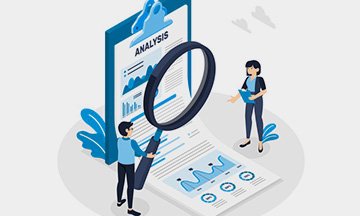Economic Analysis and Data Analytics
| Date | Format | Duration | Fees | |
|---|---|---|---|---|
| 06 May - 10 May, 2024 | Live Online | 5 Days | $2050 | Register |
| 24 Jun - 28 Jun, 2024 | Live Online | 5 Days | $2050 | Register |
| 29 Jul - 02 Aug, 2024 | Live Online | 5 Days | $2050 | Register |
| 26 Aug - 30 Aug, 2024 | Live Online | 5 Days | $2050 | Register |
| 16 Sep - 20 Sep, 2024 | Live Online | 5 Days | $2050 | Register |
| 21 Oct - 29 Oct, 2024 | Live Online | 7 Days | $2867 | Register |
| 17 Nov - 25 Nov, 2024 | Live Online | 7 Days | $2867 | Register |
| 22 Dec - 26 Dec, 2024 | Live Online | 5 Days | $2050 | Register |
| Date | Venue | Duration | Fees | |
|---|---|---|---|---|
| 13 May - 17 May, 2024 | Dubai | 5 Days | $4250 | Register |
| 27 May - 31 May, 2024 | Cairo | 5 Days | $4345 | Register |
| 03 Jun - 07 Jun, 2024 | Dubai | 5 Days | $4250 | Register |
| 10 Jun - 14 Jun, 2024 | Lagos | 5 Days | $4345 | Register |
| 15 Jul - 19 Jul, 2024 | Dubai | 5 Days | $4250 | Register |
| 05 Aug - 09 Aug, 2024 | Dubai | 5 Days | $4250 | Register |
| 12 Aug - 16 Aug, 2024 | Houston | 5 Days | $5125 | Register |
| 02 Sep - 06 Sep, 2024 | Dubai | 5 Days | $4250 | Register |
| 07 Oct - 11 Oct, 2024 | Dubai | 5 Days | $4250 | Register |
| 14 Oct - 01 Nov, 2024 | Nairobi | 15 Days | $13500 | Register |
| 11 Nov - 15 Nov, 2024 | Dubai | 5 Days | $4250 | Register |
| 01 Dec - 12 Dec, 2024 | Doha | 10 Days | $8225 | Register |
| 09 Dec - 13 Dec, 2024 | Dubai | 5 Days | $4250 | Register |
| 15 Dec - 19 Dec, 2024 | Riyadh | 5 Days | $4345 | Register |
Course Overview
The underlying skills of data analysis encompass common patterns across every organisation and industry, but there are also some particular factors when conducting data analysis.
This Economic Analysis and Data Analytics course combines skills in programming, data gathering, and data management with skills in economic reasoning and statistical analysis.
ThisEconomic Analysis and Data Analytics course is intended to bring together participants with concentrated careers that require expertise in creating data systems with analytical and statistical proficiencies.
The economics segment of the course advances the participants’ knowledge in economic theory and provides students with skills associated with advanced econometric analysis, and helps students develop their communication skills, whereas the technical part of the course is designed to provide a solid foundation in understanding the core elements of data analytics programming, building data management systems, and data mining.
What are the key elements of the Economic Analysis and Data Analytics course? The 3 key facets of this course are:
- Microeconomic analysis: which gives participants the tools to learn about corporate strategic decisions and strategic interactions within an ever-changing environment
- Corporate finance: which deals with the analysis of a firm’s financial decisions and understanding and working on various analytical techniques and quantitative case studies
- Data analytics: which helps the participants in gaining crucial knowledge in econometrics, statistics, and analysing and interpreting big data.
This Zoe training course will give the aspiring data analyst deeper practice in specific organisational and industrial contexts so that they can be better prepared for the unique contexts they’ll find themselves in when working on the job.
Course Objectives
Upon completing this Economic Analysis and Data Analytics course successfully, participants will be able to:
- Apply economic models to business problems
- Identify contexts and applications of data in specific industries and in organisational settings
- Implement conventional data analysis techniques and customising them for exceptional circumstances
- How to utilise different types of data in different scenarios
- Analyse data with advanced statistical and econometric techniques
- Learn and employ techniques of data analysis to form business strategies
- Apply computer programming and computing software to analysis of data
- Learn how to build a career in economics or data analysis
Training Methodology
This is an interactive Economic Analysis and Data Analytics training program and will consist of the following training approaches:
- Lectures
- Seminars & Presentations
- Group Discussions
- Assignments
- Qualitative Case Studies
- Quantitative Case Studies
- Functional Exercises
Just like all our courses, this program also follows the ‘Do-Review-Learn-Apply’ model.
Organisational Benefits
Companies who send in their employees to participate in this Economic Analysis and Data Analytics course can benefit in the following ways:
- Comprehend the principles and practices of economic analysis and data analytics and the context in which these principles operate
- Examine and discuss any practical issues in economic analysis and data analytics
- Analyse case studies in this domain and be able to apply successful economic analysis and data analytics techniques in your organisation
- Employ relevant institutional policies to help resolve issues that arise in economic analysis and data analytics
- Get offered with all the excellent learning opportunities your employees would get on campus, without the restrictions of fixed times or locations
Personal Benefits
Professionals who participate in this Economic Analysis and Data Analytics Training can benefit in the following ways:
- Understand the legal and theoretical principles and concepts of economic analysis and data analytics
- Assess the factors that have contributed to the rise in focus on economic analysis and data analytics from a comparative perspective
- Build upon critical thinking and independent learning skills to enable students to gain knowledge in an area of economic analysis and data analytics, which will enhance employability potential in the field of international adjudication
- Explain the practical requirements and environment for effective economic analysis and data analytics
Who Should Attend?
Professionals in the following fields will benefit from this Economic Analysis and Data Analytics Training Program:
- Management, Economics, and Consumer Studies
- International Development Studies
- Environmental Sciences
- Professionals who wish to specialise in economics
- Professionals who wish to specialise in data analytics
- New MSc Biobased Sciences for students with a specialisation in economics
- PhD candidates in the field of economics
- C-level executives who need to understand economic strategies
- Decision-makers
- Government employees who form regulations
- Customer representatives
Course Outline
MODULE 1: THE BASICS
- Basics of economic analysis
- Sources of economic data
- Microeconomic data
- Macroeconomic data
- Economic forecasting methods
- Regression analysis in economics
MODULE 2: ECONOMIC CYCLES
- Trend analysis in forecasting
- Case study – real estate
- Coefficients
- Significance
- Standard errors
- Serial correlation in data
- Analysing results
MODULE 3: FORECASTING ECONOMIC TRENDS
- Fixed effects regressions
- Omitted variables bias
- Binary outcome
- Binary regressions
- Logit models
- Probit models
- Advanced regression applications
- Federal Reserve Economic Database (FRED)
- Difference-in-differences analysis
- Difference-in-differences estimator
MODULE 4: USE ECONOMIC FORECASTS
- Understanding economic output
- Long-term capital gains rate
- Forecast accuracy
- Scenario analysis
- Using macro and microeconomic data in forecasts
MODULE 5: MICROECONOMIC ANALYSIS
- Understanding microeconomic analysis
- Corporate strategic decisions
- Market and industrial organisation
- Game theory
- Econometrics
MODULE 6: CORPORATE FINANCE
- Understanding the role of corporate finance in economic analysis
- Analysis of a firm’s financial decisions
- Use of financial models in economics
- Quantitative case studies
MODULE 7: DATA ANALYTICS
- Data Analysis in Context
- Data Analysis for Business
- Data Analysis for Education
- Data Analysis for Healthcare
- Data Analysis for Government
MODULE 8: FORECASTING METHODS
- Forecasting demand and regression
- Causal methods
- Time-series methods
- Qualitative methods
- Predicting values with regressions
MODULE 9: DATA AND ANALYSIS IN THE REAL WORLD
- Thinking about Analytical Problems
- Conceptual Business Models
- The information-Action Value Chain
- The information-Action Value Chain
- Real-World Events and Characteristics
- Data Capture by Source Systems
MODULE 10: ANALYTICAL TOOLS
- Data Storage and Databases
- Big Data & the Cloud
- Virtualisation, Federation, and In-Memory Computing
- The Relational Database
- Data Tools Landscape
- The Tools of the Data Analyst
MODULE 11: PERFORM PREDICTIVE ANALYTICS TASKS
- Cross-Validation and Confusion Matrix
- Assessing Predictive Accuracy Using Cross-Validation
- Building Logistic Regression Models using XLMiner
- How to Build a Model using XLMiner
MODULE 12: DECISION ANALYTICS
- Business Problems with Yes/No Decisions
- Formulation and Solution of Binary Optimisation Problems
- Metaheuristic Optimisation
- Chance Constraints and Value at Risk
- Simulation Optimization











